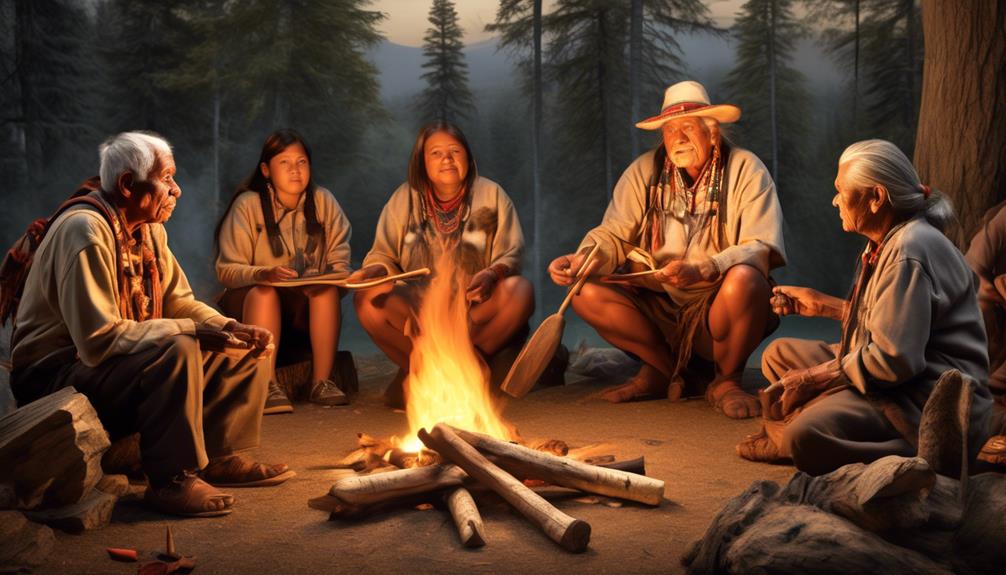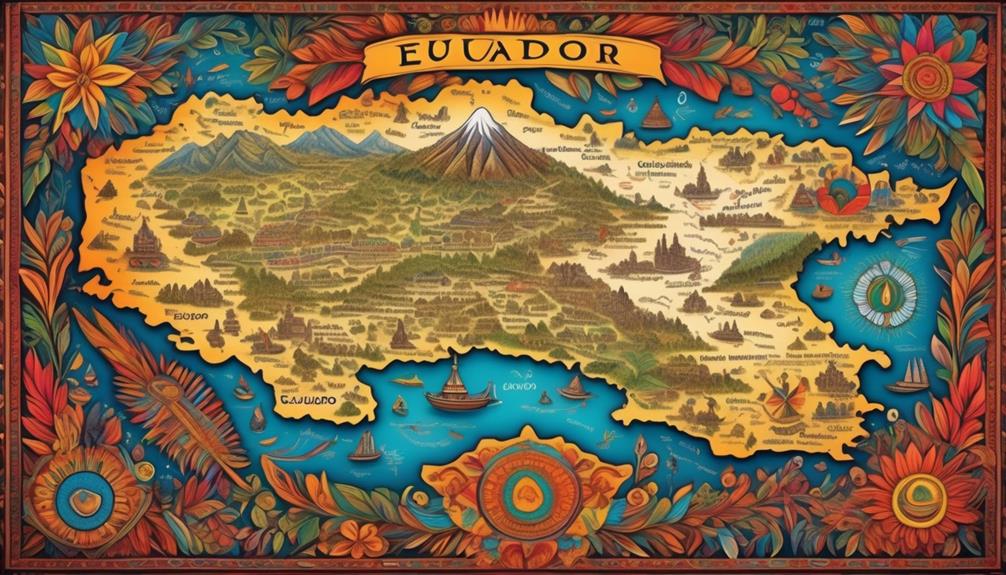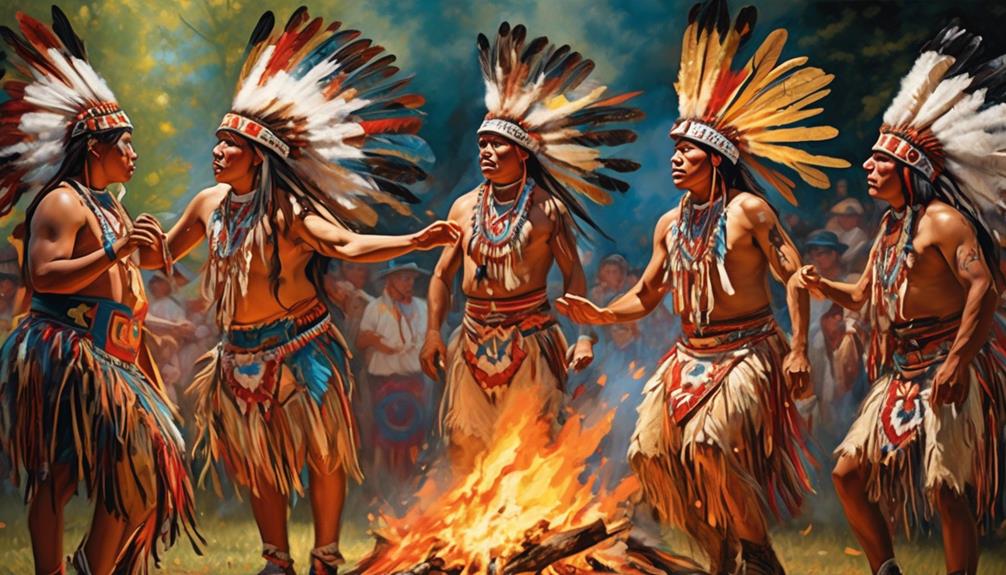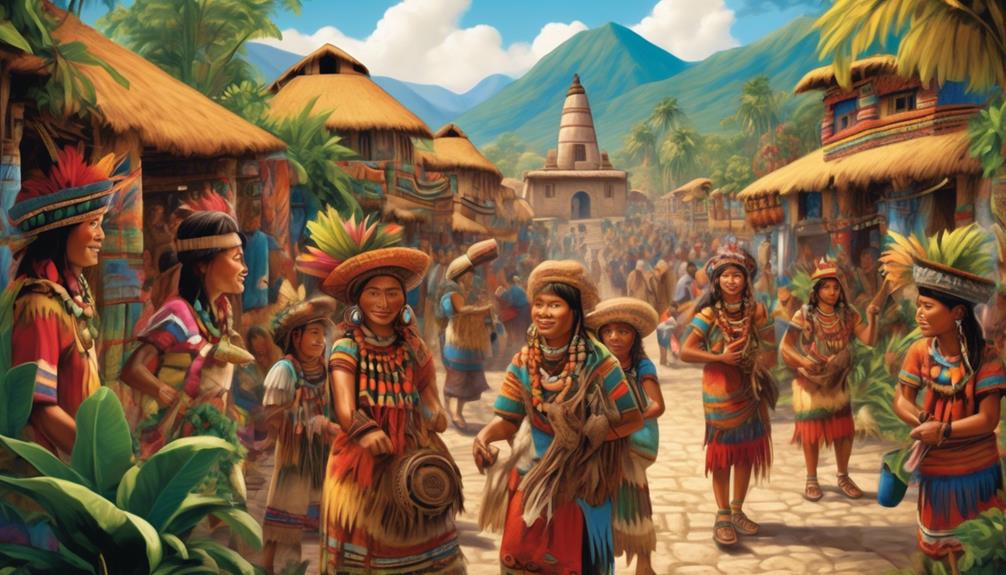While navigating the intricate web of knowledge, Indigenous Studies serves as a guiding light, directing us through the diverse landscapes of indigenous cultures, histories, and experiences.
This interdisciplinary field not only challenges dominant narratives but also amplifies the voices and perspectives that have been marginalized for far too long.
It is a journey of discovery, shedding light on the profound relevance and impact of indigenous knowledge in today's world.
But what exactly does this encompass, and why is it so crucial?
Key Takeaways
- Indigenous Studies emerged in the mid-20th century and recognizes the importance of understanding diverse cultures, histories, and ways of life.
- It takes an interdisciplinary approach, incorporating insights from anthropology, sociology, history, and other disciplines, and explores cultural perspectives from within Indigenous communities.
- Indigenous Studies challenges dominant narratives and misconceptions by critically examining historical biases, elevating Indigenous voices and perspectives, and dismantling harmful stereotypes and misinformation.
- It promotes the preservation and empowerment of Indigenous knowledge and communities, supporting cultural revitalization programs and building collaborative partnerships with Indigenous knowledge holders.

mâci-nêhiyawêwin / Beginning Cree (Indigenous Languages for Beginners, 3)
As an affiliate, we earn on qualifying purchases.
As an affiliate, we earn on qualifying purchases.
Origins of Indigenous Studies
Where did the study of Indigenous cultures and societies originate?
The origins of Indigenous Studies can be traced back to the mid-20th century when scholars began to realize the importance of understanding and respecting the diverse cultures, histories, and ways of life of Indigenous peoples. The interdisciplinary approach of Indigenous Studies emerged from the recognition that a comprehensive understanding of Indigenous societies requires insights from anthropology, history, sociology, political science, and other disciplines. This approach acknowledges the complexity and richness of Indigenous cultures and societies, challenging the narrow perspectives that had previously dominated academic discourse.
Opposing views on the legitimacy and relevance of Indigenous Studies have also played a significant role in its origins. Some critics questioned the need for a separate field of study, arguing that Indigenous knowledge could be adequately addressed within existing disciplines. However, proponents of Indigenous Studies argued that a specialized approach was necessary to counteract the marginalization and misrepresentation of Indigenous peoples in academic and societal contexts. This debate ultimately contributed to the establishment and growth of Indigenous Studies as a distinct and vital field of scholarship.

Fun Express 96 Pieces Native American Heritage Handout Kit – Fun Educational Resources for Cultural Awareness and Classroom Activities – Multicolored, Metallic
"Celebrate Native American Heritage Month with this vibrant handout kit! Ideal for gifts, classroom rewards, or general supplies,…
As an affiliate, we earn on qualifying purchases.
As an affiliate, we earn on qualifying purchases.
Interdisciplinary Approach
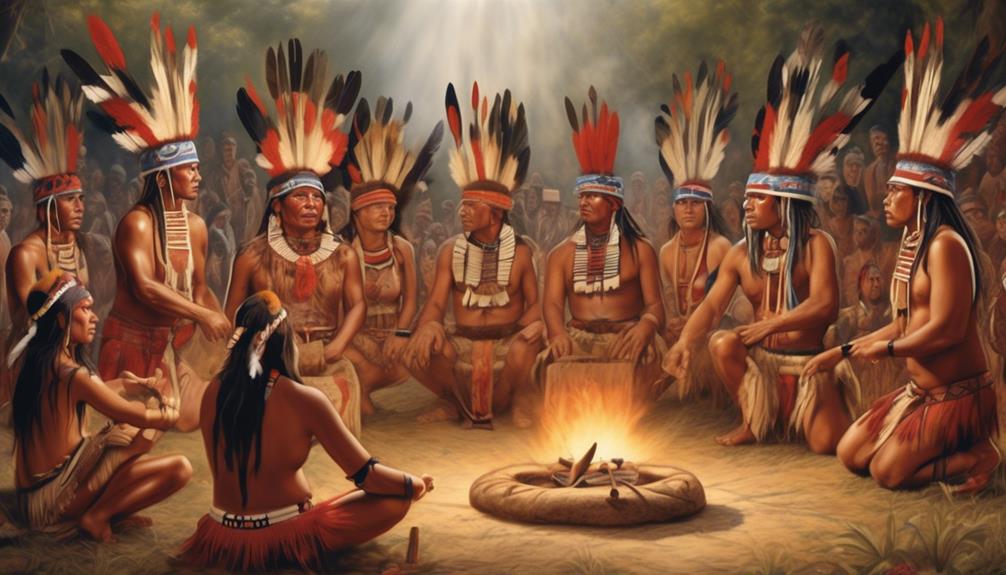
The emergence of Indigenous Studies as an interdisciplinary field reflects a recognition of the need for comprehensive insights from various disciplines to understand and respect the diverse cultures, histories, and ways of life of Indigenous peoples. This interdisciplinary approach allows for a more holistic understanding of Indigenous communities and their experiences, enabling a more respectful and accurate portrayal of their cultural perspectives.
Here are some key aspects of this interdisciplinary approach:
- Cultural Perspectives: By incorporating insights from anthropology, sociology, history, and other disciplines, Indigenous Studies provides a platform for the exploration of cultural perspectives from within Indigenous communities, fostering a deeper understanding of their worldviews and traditions.
- Interconnectedness: This approach acknowledges the interconnected nature of Indigenous knowledge systems, environments, languages, and social structures, emphasizing the importance of integrating multiple disciplinary lenses to capture the complexity and richness of Indigenous cultures.
- Decolonization: Through an interdisciplinary lens, Indigenous Studies seeks to challenge colonial narratives and methodologies, promoting a decolonized approach to research and scholarship that respects Indigenous ways of knowing and being.
- Social Justice: The interdisciplinary nature of Indigenous Studies enables the exploration of issues such as land rights, self-determination, and sovereignty from diverse academic perspectives, contributing to the pursuit of social justice for Indigenous peoples.

Indigenous Knowledge: Australian Perspectives
As an affiliate, we earn on qualifying purchases.
As an affiliate, we earn on qualifying purchases.
Challenging Dominant Narratives
Challenging dominant narratives within Indigenous Studies requires a critical examination of historical biases and a deliberate interrogation of prevailing misconceptions about Indigenous communities. By engaging in this process, we aim to decolonize education and promote cultural preservation.
It's essential to recognize that many historical accounts have been shaped by colonial perspectives, often misrepresenting or erasing Indigenous experiences. To challenge these narratives, we must actively seek out and elevate Indigenous voices, acknowledging their diverse perspectives and lived realities. This involves dismantling the pervasive myths that have perpetuated harmful stereotypes and misinformation about Indigenous peoples.
Moreover, the decolonization of education is integral to this endeavor. It involves reevaluating curricula, recentering Indigenous knowledge systems, and fostering a more inclusive learning environment. By doing so, we can actively work towards rectifying the erasure of Indigenous histories and contributions.
Additionally, cultural preservation plays a crucial role in challenging dominant narratives. It involves safeguarding traditional practices, languages, and customs, ensuring that they aren't overshadowed or misrepresented by mainstream narratives.
Ultimately, by challenging dominant narratives, we can strive to create a more accurate and respectful understanding of Indigenous communities.

Hidden Colors: The Untold History Of People Of Aboriginal,Moor,and African Descent
As an affiliate, we earn on qualifying purchases.
As an affiliate, we earn on qualifying purchases.
Promoting Indigenous Knowledge
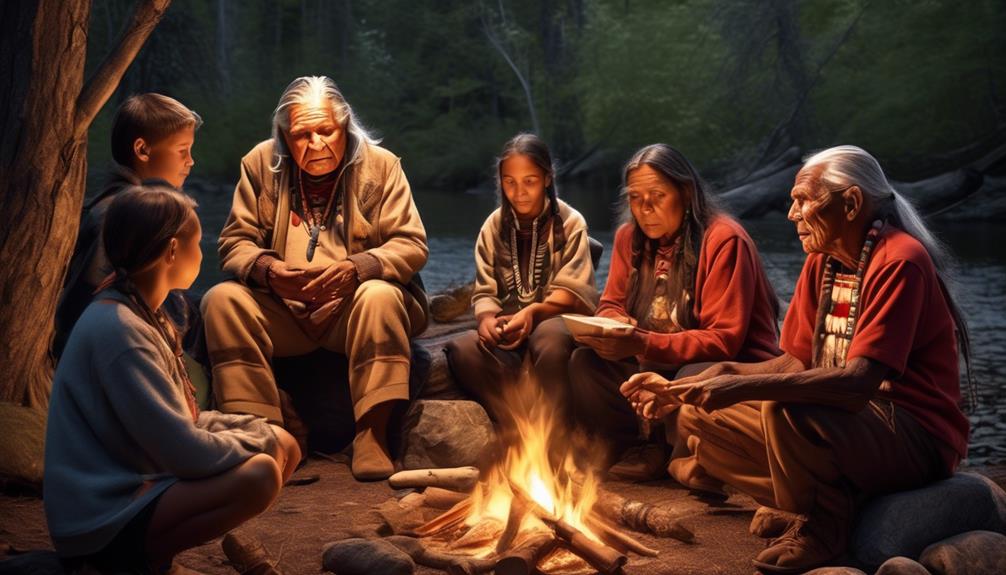
Promoting Indigenous knowledge involves amplifying traditional wisdom and revitalizing cultural practices to ensure their preservation and recognition. It's essential to acknowledge and elevate Indigenous perspectives, which offer unique insights and understandings of the world.
To effectively promote Indigenous knowledge, we must actively engage in the following actions:
- Community Empowerment: Supporting Indigenous communities in their efforts to preserve and transmit traditional knowledge through education, mentorship, and resource allocation.
- Cultural Revitalization Programs: Implementing initiatives that promote the revitalization of Indigenous languages, arts, and practices, fostering a sense of pride and connection to heritage.
- Collaborative Partnerships: Building respectful and reciprocal partnerships with Indigenous knowledge holders, integrating their perspectives into research, education, and policy-making processes.
- Public Awareness Campaigns: Raising awareness about the importance of Indigenous knowledge preservation, challenging misconceptions, and highlighting its value in addressing contemporary global challenges.
Relevance and Impact
Understanding Indigenous knowledge and its impact on contemporary society is crucial for fostering intercultural understanding and addressing pressing global issues. The relevance of Indigenous studies lies in its ability to challenge mainstream narratives and offer a more inclusive representation of diverse cultures.
By incorporating Indigenous perspectives, we can enrich our understanding of history, literature, and environmental sustainability. This relevance extends beyond academia, influencing policy-making, social justice movements, and cultural industries.
The impact of Indigenous studies is evident in the empowerment of Indigenous communities, as it promotes self-determination and challenges systemic inequalities. Through this field, we recognize and validate Indigenous knowledge, which has been historically marginalized.
Frequently Asked Questions
How Does Indigenous Studies Address the Impacts of Colonization on Indigenous Communities?
We address the impacts of colonization on Indigenous communities by emphasizing cultural preservation and identity formation.
Indigenous studies actively examines the historical and ongoing effects of colonization on various aspects of Indigenous life.
By centering Indigenous perspectives and experiences, we seek to understand and challenge the systemic injustices and intergenerational traumas caused by colonization.
Our work aims to empower Indigenous communities and support their resilience in reclaiming and revitalizing their cultures and identities.
What Are Some Common Misconceptions About Indigenous Knowledge That Indigenous Studies Seeks to Challenge?
Challenging misconceptions about Indigenous knowledge is essential to understanding its richness and complexity. Indigenous Studies seeks to highlight the resilience and resistance within Indigenous communities, dispelling myths about their knowledge and culture.
How Does Indigenous Studies Incorporate Traditional Ecological Knowledge and Its Relevance to Environmental Issues?
Incorporating indigenous knowledge into environmental sustainability is crucial. Traditional ecological knowledge, rooted in community perspectives, offers valuable insights on how to care for our planet.
It's like the saying, 'We don't inherit the earth from our ancestors; we borrow it from our children.' Indigenous studies actively integrates this wisdom, elevating the importance of indigenous voices in addressing environmental issues and promoting sustainable practices for the benefit of future generations.
What Are Some Examples of Successful Collaborations Between Indigenous Communities and Academic Institutions in the Field of Indigenous Studies?
We've seen successful partnerships between indigenous communities and academic institutions in indigenous studies. These collaborations prioritize community engagement, academic contributions, cultural preservation, and knowledge exchange.
Research collaborations have yielded valuable insights into traditional practices, environmental sustainability, and social justice. These partnerships demonstrate the importance of mutual respect, reciprocity, and inclusivity in advancing knowledge and addressing critical issues.
Such initiatives showcase the positive outcomes of bridging indigenous knowledge with academic expertise.
How Does Indigenous Studies Address the Diversity of Indigenous Cultures and Traditions Across Different Regions and Communities?
Addressing the diversity of indigenous cultures and traditions across different regions and communities is a central focus of indigenous studies. We strive to preserve and adapt cultural traditions, recognizing the unique and varied ways in which different indigenous groups express their heritage.
Conclusion
In conclusion, Indigenous Studies offers a critical lens through which to understand the diverse experiences and knowledge of Indigenous peoples.
How can we continue to center Indigenous perspectives and challenge dominant narratives in our own work and everyday lives?
By embracing an interdisciplinary approach and promoting Indigenous knowledge, we can contribute to a more inclusive and equitable society.
Let's continue to learn, listen, and elevate Indigenous voices.
